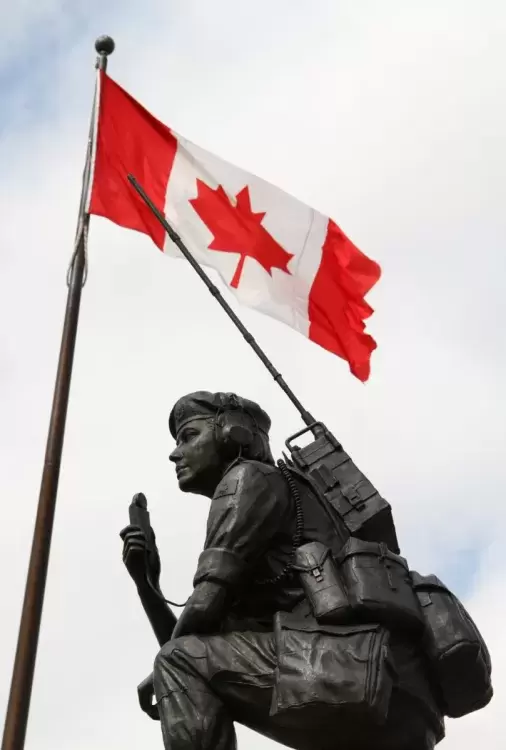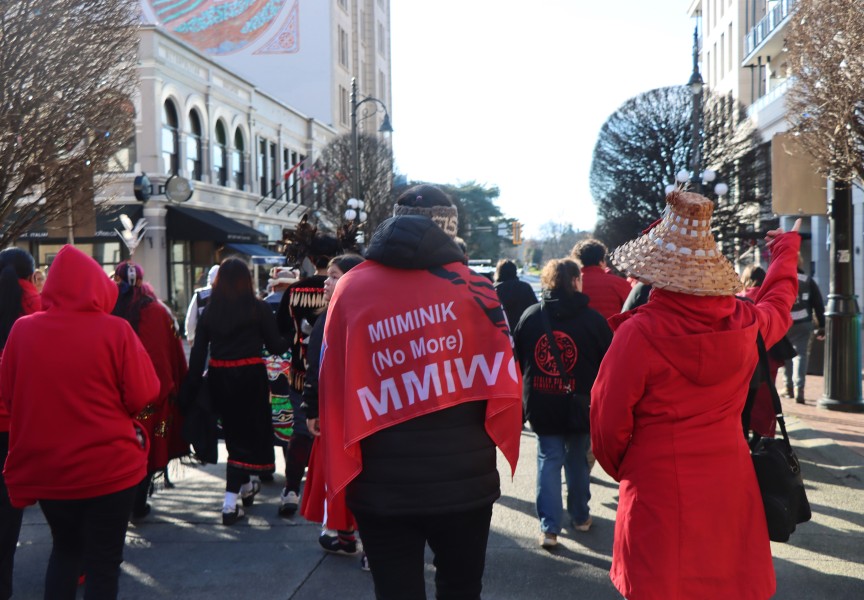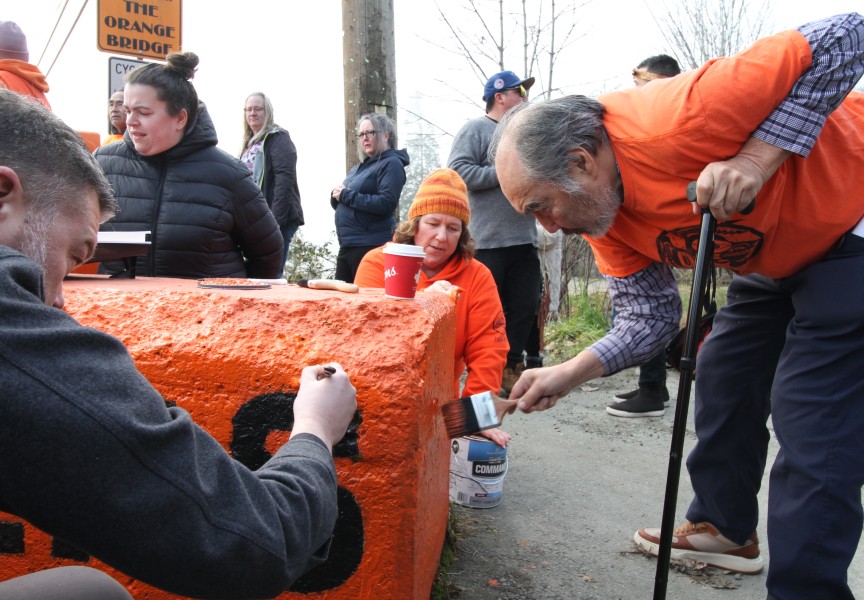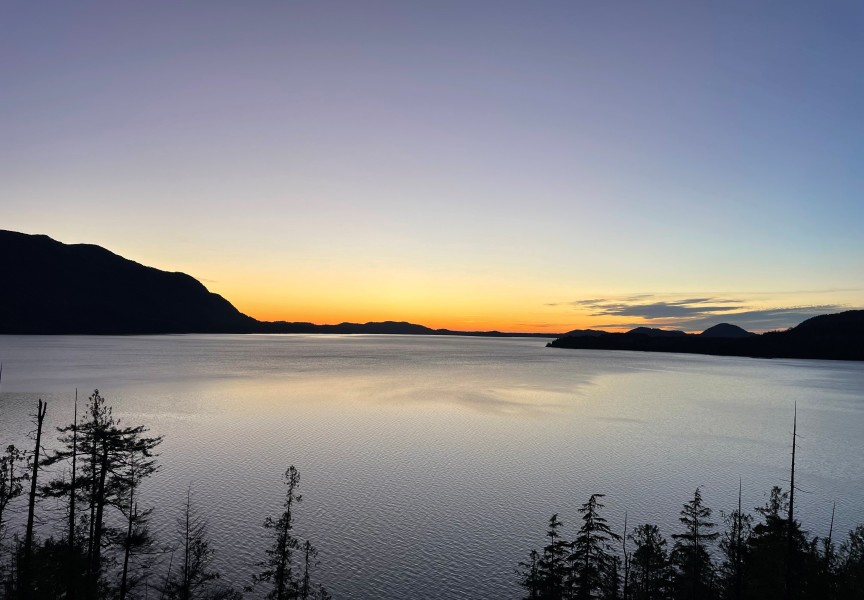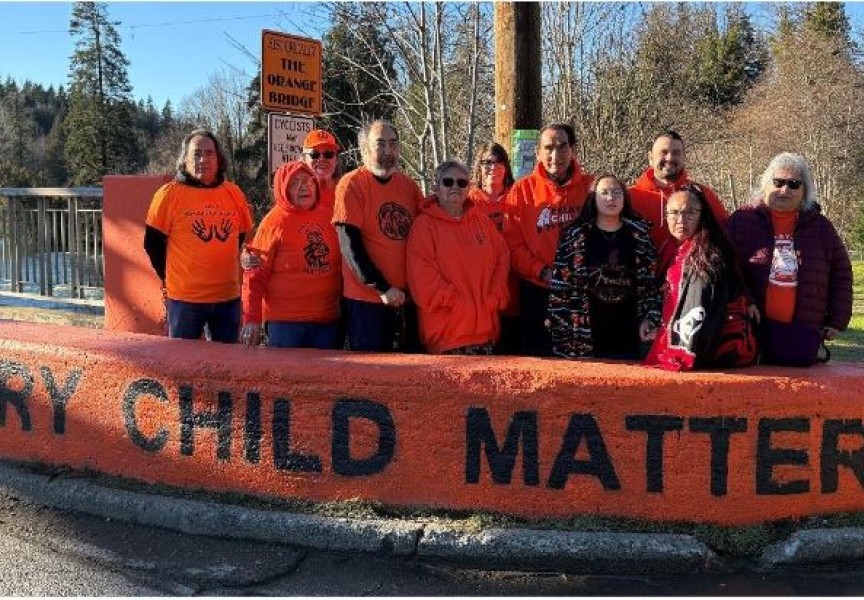In the lead up to Indigenous Veterans Day and Remembrance Day, the Assembly of First Nations (AFN) executive committee released a statement on how they think Canada should proceed in raising the Canadian flags on federal buildings.
After the remains of 215 people were found buried in unmarked graves at the site of the former Kamloops Indian Residential School in May, Liberal Leader Justin Trudeau ordered that Canadian flags on federal buildings be flown at half-mast.
It has been the longest period of time in Canada’s history that the national flag has remained lowered in this manner.
The AFN proposed a “solution” to continuing to recognize the deaths of Indigenous children at the assimilationist institutions, while honouring all veterans.
The assembly called on the federal government to raise the Canadian flag and to attach an “Every Child Matters” orange flag to all federal buildings, beginning Nov. 7.
In honour of Indigenous Veterans Day on Nov. 8, they called for the flags to be lowered to half-mast.
“Furthermore, the ‘Every Child Matters’ orange flag will continue to fly until all of our children are recovered, named, and symbolically or physically returned to their homelands with proper ceremony,” the AFN said.
Nuu-chah-nulth Tribal Council (NTC) Vice-President Mariah Charleson said that she thinks it’s too early for the flags to be raised at all.
“There is still the unearthing of truth happening as we speak,” she said. “People are grieving all across the country of Canada.”
Charleson added that the “Every Child Matters” orange flags should continue to fly well after all the children who never returned home are recovered and memorialized.
It should stay flying for as long as Canada continues to stand as a reminder of the “deeply ingrained, explicit and overt racism that has happened in this country,” she said.
In their statement, the AFN said the government “can” take concrete action on truth and reconciliation.
“We need to see stronger language than they ‘can’,” said Charleson, who suggested they “demand the government to immediately act.”
Ultimately, the flags on federal buildings were hoisted at sunset on Sunday, so they could be lowered at sunrise on Monday for Indigenous Veterans Day. They will be raised again at sunrise on Nov. 9, and lowered on Nov. 11 for Remembrance day.
“Raising the flag at this time will allow us to honour and remember important moments in Canada’s history,” said Canadian Heritage, Crown-Indigenous Relations and Northern Affairs Canada in a joint statement. “Many discussions were held between Indigenous partners and the Government of Canada to seek guidance on how best to honour the victims of residential schools and ensure they are never forgotten in the future.”
More than 4,000 Indigenous peoples served in uniform during the First World War and more than 3,000 First Nations members, as well as an unconfirmed number of Métis and Inuit, served during the Second World War.
In a release, Veterans Affairs Canada said First Nations, Inuit and Métis members took on important roles and made many significant contributions to Canada’s military.
“One notable example of this was working as ‘code talkers’," said Veteran Affairs Canada. "First Nations radio operators communicated sensitive radio messages in their own languages so they could not be understood if intercepted by the enemy.”
After Remembrance Day, the Canadian flag will fly at full-mast and will be lowered every Sept. 30 to honour the National Day for Truth and Reconciliation.
“The government will also fly the National Centre for Truth and Reconciliation’s Survivors Flag in a suitable location in the parliamentary precinct, with the centre’s permission,” said Canadian Heritage, Crown-Indigenous Relations and Northern Affairs Canada. “In addition, work will continue in partnership with survivors, families and representative organizations to seek appropriate protocols to recognize future findings at former residential schools and to ensure their legacy remains at the forefront of Canadians’ minds.”
Canadian Heritage, Crown-Indigenous Relations and Northern Affairs Canada acknowledged that their joint statement comes at a difficult time and “may serve as an unwelcome reminder to those who have suffered.”
For Charleson, the sentiment rang true.
“Personally, I think it's too early [to raise the flags],” she said. “I think that it is far too early.”

